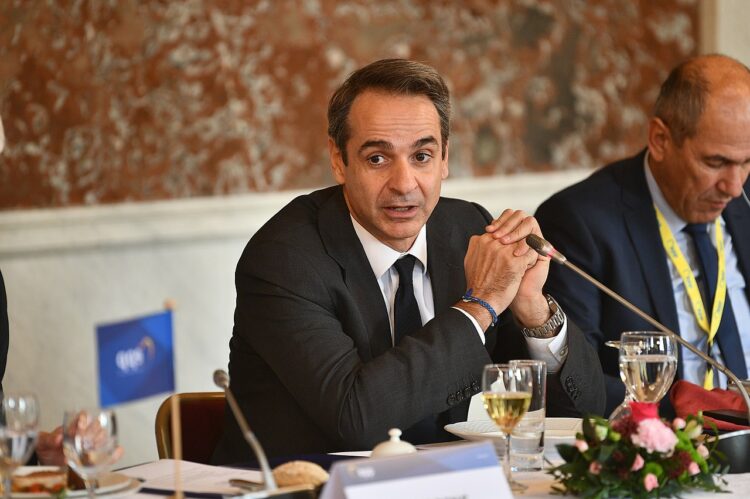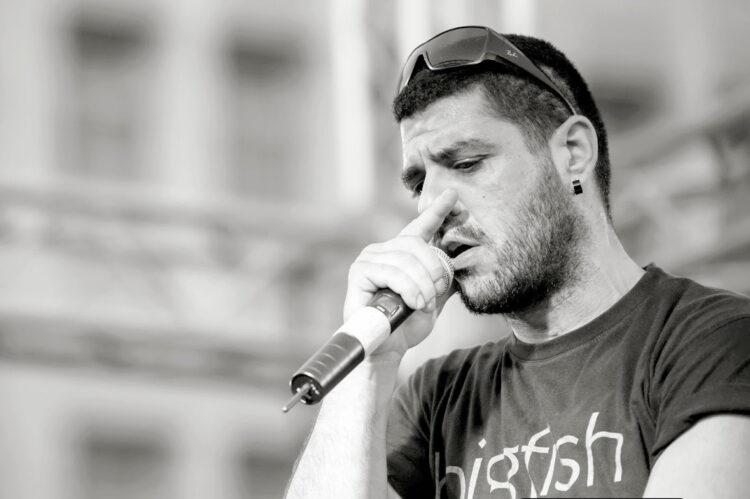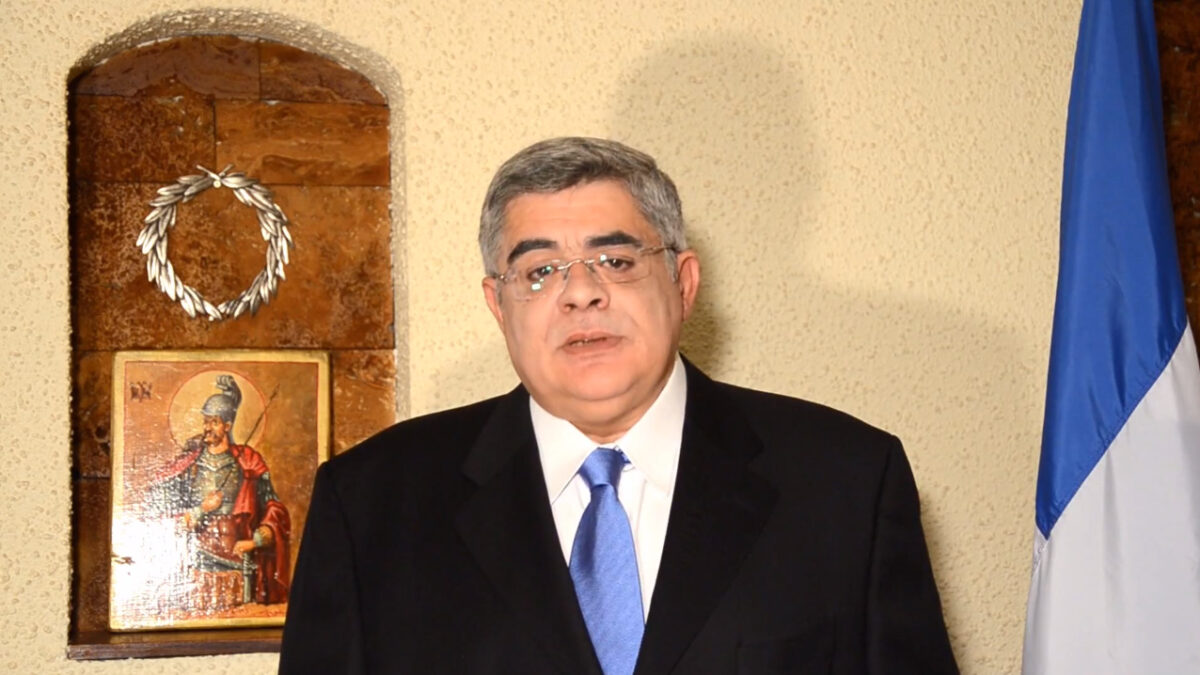A court in Athens rendered a judicious verdict on October 7 by condemning the Greek neo-fascist political party Golden Dawn as a criminal organization. Its decision was hardly surprising, since there was never any doubt that Golden Dawn was beyond the pale of decency and respectability.
It took three judges five years to reach that foregone conclusion, thereby bringing to a close “a traumatic cycle in the country’s public life,” as Greek Prime Minister Kyriakos Mitsotakis said.

Sixty nine defendants, including its leader Nikos Michaloliakos and his cohort of 18 ex-parliamentarians, face prison terms ranging from five to 15 years.
Formed some 40 years ago, Golden Dawn rose from obscurity during the financial crisis that gripped Greece. Portraying itself as a patriotic party upholding traditional Greek values, it won 18 out of 300 seats in the 2012 election and became the third largest party in Parliament.
During its heyday, Golden Dawn maintained contact with neo-fascist parties in Europe and the United States, while its chief spokesman, Illias Kasidiaris, acknowledged that he was a Holocaust denier as well as an admirer of German Nazism. In a televised interview in 2012, he said, “History has not yet given its final verdict on Hitler.” With these self-incriminating words, Kasidiaris exposed himself completely.

By 2019, Golden Dawn was an irrelevant relic of the past, having alienated even far-right Greek voters and having failed to win a single seat in that year’s election.
From the outset, Golden Dawn’s leadership was largely composed of thugs and misfits who resorted to violence to silence left-wing opponents and intimidate migrants who had found a haven in Greece. They had nothing but contempt for the rules and conventions of democracy and often behaved like criminals. They simply did not belong in Parliament.
Ironically, their illegal operational methods proved to be their downfall.

Just a year after Golden Dawn won parliamentary representation, one of its members, Giorgis Roupakias, took the law into his own hands and murdered left-wing rapper Pavlos Fyssas. On the heels of this outrage, Golden Dawn members or supporters assaulted three Egyptian migrants and several officials of the Communist Party’s trade union.
In the wake of these incidents, which precipitated a wave of revulsion across Greece, the federal government cracked down on Golden Dawn, arresting its entire leadership and launching a judicial investigation into its activities.
Greek President Katerina Sakellaropoulou described the outcome of the trial as “an important day for democracy.” And while her assessment is accurate, caution should be exercised.

Kasidiaris and former members of Golden Dawn have formed a new party that espouses an identical outlook and philosophy. So Greece is not yet done with extreme right-wing parties, which endanger its democratic system and tarnish its international image.
In the meantime, though, Greeks can rejoice. They have gotten rid of Golden Dawn, a cancerous wound on Greece’s body politic.
